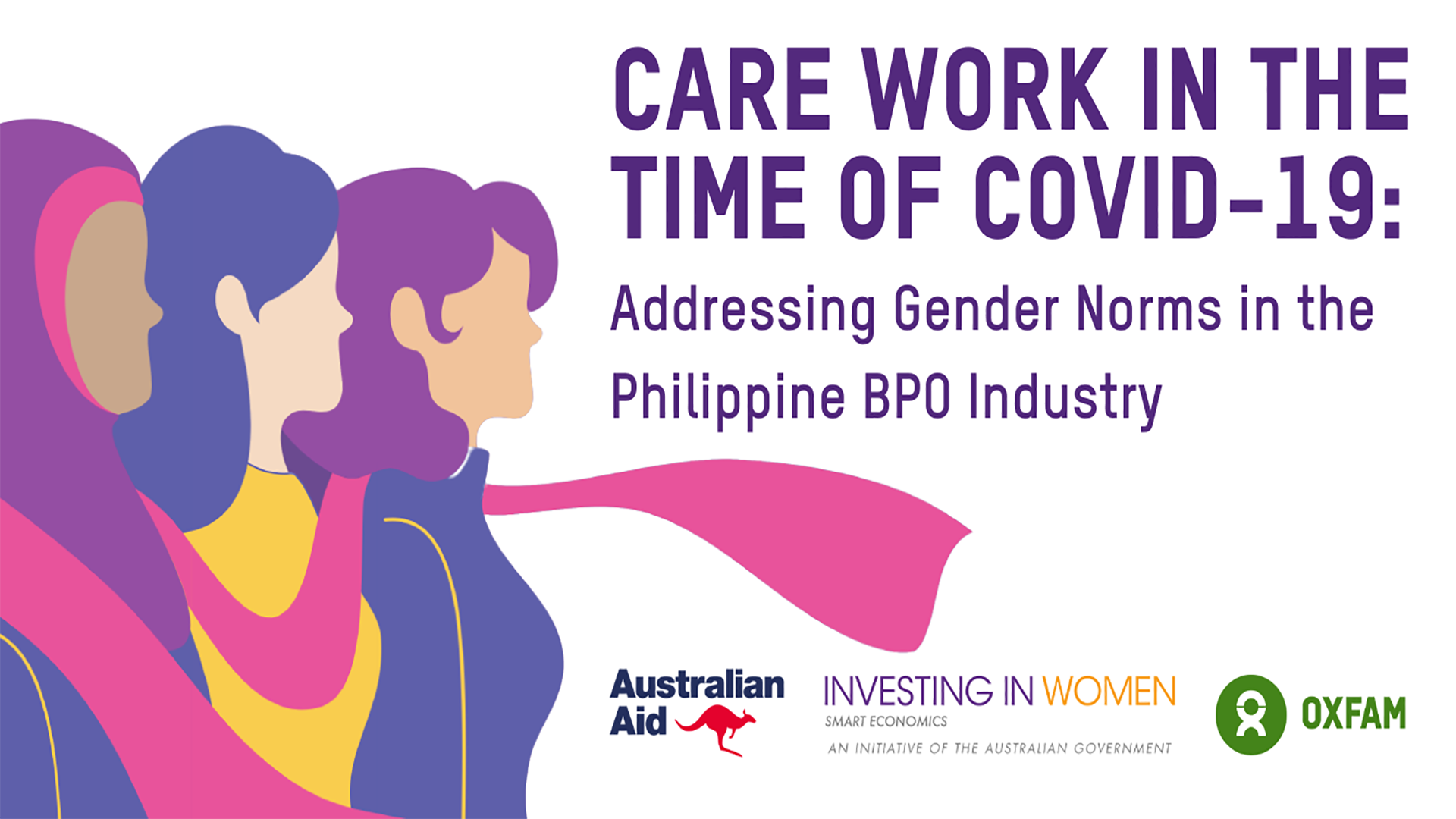- Version
- Download 2222
- File Size 1.12 MB
- File Count 1
- Create Date August 28, 2022
- Last Updated October 31, 2025
Baseline Report
As the number of COVID-19 cases increased dramatically at the height of the pandemic, so did the demand for invisible and unpaid labor when most people were forced to stay home during periods of lockdown and community quarantine. Consequently, women and girls bore most of the burden. Yet, while this was the case, the crucial contributions of unpaid care and domestic work remained unaccounted and largely ignored in the Philippine government’s COVID response.
This baseline research is designed to surface gender norms or the narratives of unpaid care work and women’s breadwinning among urban millennials in the BPO sector while coping with the effects of the COVID-19 pandemic. The BPO sector was chosen as the focus of this research because they have been dubbed “female-friendly workplaces,” with women making up 71% of the total BPO global workforce (Hultgren, 2018). In the Philippines, women account for at least 53.2% of the BPO workforce (BPO Industry Employees Network, 2019). With the high rate of women’s participation in BPOs, the study views the sector as a potential space for shifting gender norms.
This study reveals how persistent gender norms still surround unpaid care work (UCW) and breadwinning. It also highlights potential positive deviances from the traditional gender norms that can pave the way towards more equal sharing of UCW. The research also identifies possible recommendations or strategies to support shared responsibilities and women’s breadwinning, particularly in relation to Oxfam’s campaign on unpaid care work.
Data were generated through a combination of quantitative and qualitative methods, through a self-administered survey and the conduct of focus group discussions with identified BPO employees. The survey captured responses from 232 respondents -- BPO workers aged 23-38 years or those within the same age bracket who have worked in a BPO in the last two years. Of the survey participants, 56% were female, 38% were male and 1.7% were non-binary. Most survey respondents (63%) were unpartnered while 33% were in a domestic partnership.
Four focus groups -- (1) all male; (2) all female; (3) LGBTQIA+ and non-binary; and (4) a mixed group of single households – heads were convened. A total of 17 participants composed of seven females, seven males and three LGBTQIA+ persons attended the FGD sessions. Most of them were not survey respondents.
To analyze the results of this study, the Investing in Women (IW) Norms Framework was used to identify potential positive deviances.
